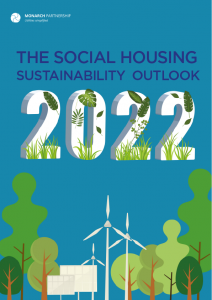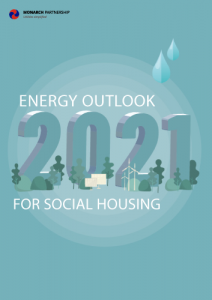Energy and carbon reporting is becoming a mandatory practice for many organisations. This will only become more prevalent as the UK works towards net zero. This legislation can seem complex and difficult to navigate, but there are hidden benefits in complying. Buildings across the EU are responsible for 40% of all energy consumption and 36% of CO2 emissions. Tackling this problem is a key step in reaching net zero targets. The Energy Performance of Buildings Directive (EPBD) was established to ensure a significant reduction in emissions from new and existing buildings.
While it’s easy to make improvements in new builds, the country has a large backlog of renovations needed to reach net zero compliance. In 2018, 75% of existing buildings were categorised as ‘energy inefficient’.
Does my building need an EPBD certificate?
Staying compliant with EPBD legislation isn’t too complicated. There are three main types of certification and which ones you need depends on your property. Compliance in the UK hinges on three types of certification. Both private and public sector buildings need these.
DECs (Display Energy Certificates)
Like those found on appliances, a DEC shows the buildings energy performance and is based on the consumption recorded over the previous 12 months. The rating system is from A to G, with an A rating having the lowest emissions and G having the highest.
These are required by any building larger than 250m2 that is frequently visited by the public. Alongside the DEC an advisory report is also required. These are valid for 10 years for any building up to 1000m2 and for 12 months for larger buildings. Private organisations do not need to display a DEC but may voluntarily do so.
TM44 air conditions inspections
Any building with installed air conditioners must be inspected every 5 years. Your inspector will provide you with a certificate and a report on how efficient the equipment is. This document will list any issue and suggest any improvements you may be able to make.
EPCs (Energy Performance Certificates)
This certificate is needed when a property is built, sold or rented. It includes an efficiency rating from A to G and is valid for 10 years. Buildings that don’t achieve an E grade or higher cannot be sold or let.
EPBD and the NZEB
With the introduction of the EPBD came a commitment that all new properties be Nearly Zero Energy Buildings (NZEBs). While no exact numerical targets were established for this classification, the aim is to ensure that NZEBs use very low amounts of energy. The supply of power should also be mainly from renewable sources. In 2016 the government’s Zero Carbon Homes policy was scrapped. As a result, the EPBD became one of only a few laws targeting building efficiency.
Currently, UK legislation focuses on emissions standards while the EU laws also include ‘primary energy’. This is based on how much raw fuel is used to generate the power for each building, including the amount lost in transmission. This further highlights the need for new properties to source green, renewable sources of energy to remain compliant with the potential changes in legislation. Guidelines are likely to be tightened as 2050 moves nearer and the net-zero deadline approaches.
While decarbonising buildings is the main aim of the legislation, there are other benefits. It was also designed to create economic opportunities in the construction and renovation industry. And takes steps to battle energy poverty.
The Brexit impact on EPBD?
In the aftermath of Brexit, there was some concern about the future of the agreement and whether the UK would continue to follow the regulations. At the very least, there was a requirement to transition the EU directive into domestic law. Following extensive consultation, the Environment Secretary Michael Gove released a statement outlining the UK’s continuing dedication. Not only to meet these standards but also to improve them.
How Monarch can help you
At Monarch, we support any initiative that encourages lower emissions and we offer sustainability simplification across various sectors. We guide our clients towards the most efficient and cost-effective energy management plan. This includes smart metering, bill validation, renewable energy procurement and exploring your on-site energy generation options.
Our in-house team of specialists can help you audit and monitor your energy usage, identifying and suggesting solutions for any areas of inefficiency and waste. We have extensive experience in guiding our clients through the evolving energy landscape towards lower emissions and costs. Your account manager will assist with procuring the services and commodities you need to manage the supply and usage, and ensure you are fully updated with all the relevant legislation.
For more information on our services and how we can make things easier for your business, get in touch today.















